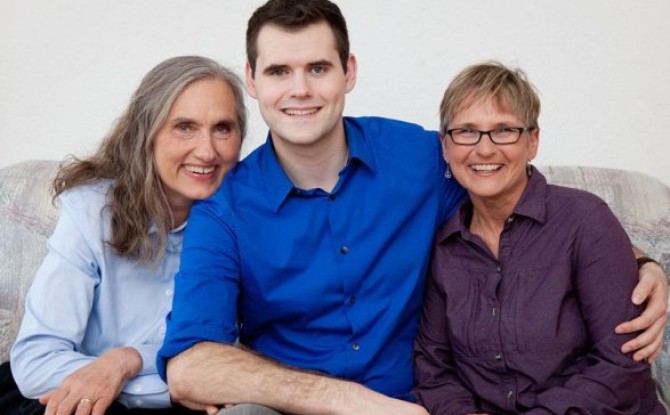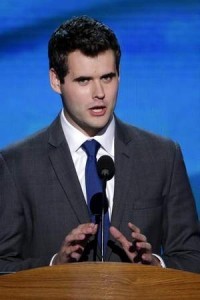From Mombian.com – May 27, 2014
A new law in Washington, D.C. is drawing lesbian couples from other jurisdictions to give birth there — and a bill making its way through the California legislature could simplify the paperwork and clarify parenting arrangements for same-sex couples in that state.
A new law in Washington, D.C. allows courts to grant second-parent adoptions to out-of-state lesbian couples if their child was born in D.C., even if the parents don’t reside there, reports the Washington Post. This law is leading to an increasing, though unspecified, number of lesbian couples from neighboring states coming to D.C. to deliver their babies. Next-door Virginia, for example, only grants adoptions to married couples, and does not recognize marriages of same-sex couples. Couples have also come from as far afield as North Carolina and Ohio in order to give their children the protection of two legal parents. [Update: Bill Singer, a lawyer in New Jersey who did the parentage order for my spouse and I when we were expecting our son, commented on Twitter that: “NJ has long had law allowing adoption for child born here. My clients from non-recog states call it the underground birth canal.”]
It’s a hassle, indeed, especially since children have a habit of sending our bodies into labor when we don’t expect it. Of course, second-parent adoption is in itself a hassle. We shouldn’t have to adopt children that we planned for with a partner. More states now allow both parents’ names to be on the birth certificate, which is great, and allows for protection from the moment of birth — but other states may not recognize the non-biological parent’s right to be there if they don’t recognize the parents’ relationship in the first place. Second-parent adoption is more secure — but is still a financial and emotional hassle, requiring fees and a home study.
Click here to read the entire article.


 Numerous professional organizations
Numerous professional organizations